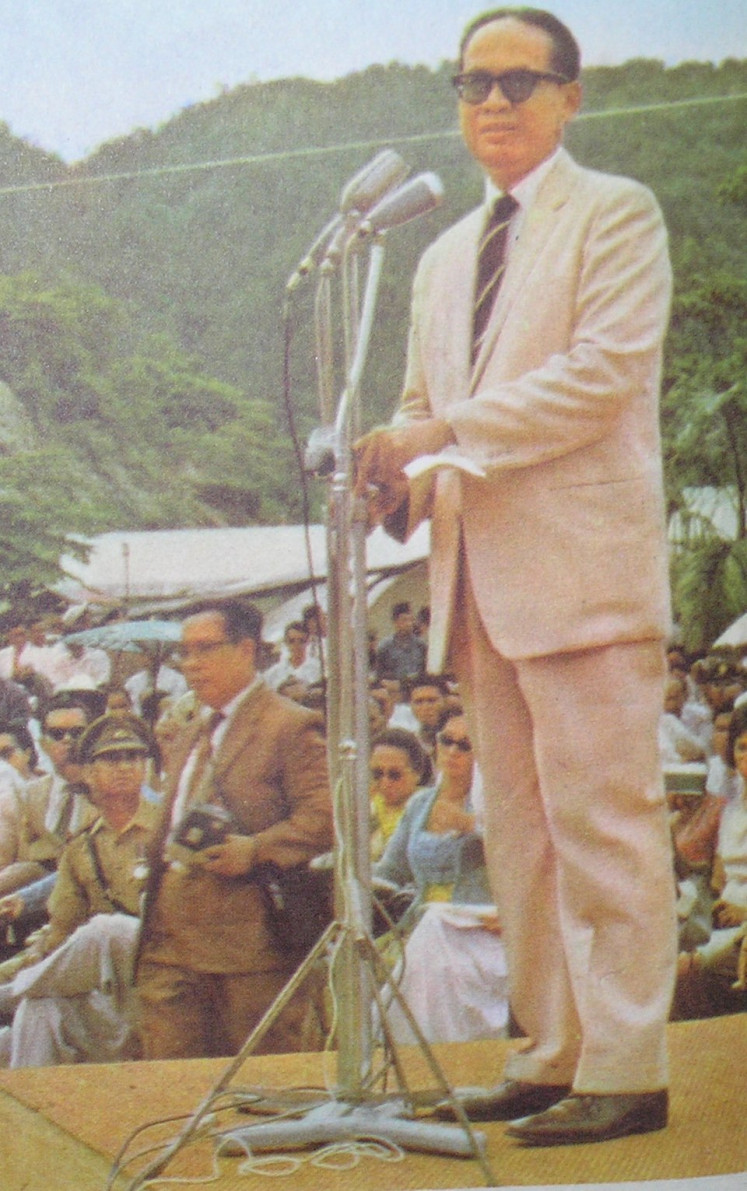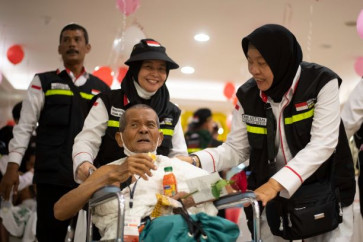Popular Reads
Top Results
Can't find what you're looking for?
View all search resultsPopular Reads
Top Results
Can't find what you're looking for?
View all search resultsThree cheers for the 67,000 elderly haj pilgrims
The government provides special assistants, who are well-trained and well-equipped, to take care of older pilgrims.
Change text size
Gift Premium Articles
to Anyone
T
he Religious Affairs Ministry, with its "Elderly-Friendly Haj" motto, is taking on an arduous task that demands wholehearted empathy, unswerving patience and physical endurance from its ground officers, because 30.2 percent, or 66,742, of the total 221,000 Indonesian haj pilgrims this year are above 65 years old.
The story of 95-year-old haj pilgrim Juhani went viral last week. Just as a Saudi Airlines plane carrying Indonesian pilgrims was about to land in Medina, Juhani suddenly approached a flight attendant, asking her permission to get off the aircraft. He wanted to return home simply because he had forgotten to feed his chickens.
"He has a dementia problem due to his old age," a medical doctor said after checking Juhani's health upon his arrival in the Saudi Arabian city.
I hope all the pilgrims, old and young, will return home as haji mabrur (those blessed with the grace of God) despite the challenges of performing the pilgrimage without a companion this year, as required by Saudi Arabia.
I often met Indonesians traveling in groups for umrah (minor haj) at Soekarno-Hatta International Airport or during stop-overs in Dubai, Doha, Istanbul or Singapore. Many of them were in wheelchairs but looked happy and well-treated.
Stories about the haj have always attracted my attention, not because I am Muslim (I am Catholic by birth), but because of my own experiences.



















